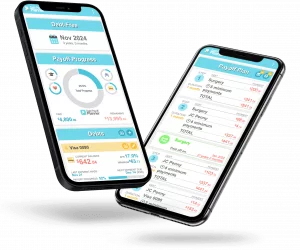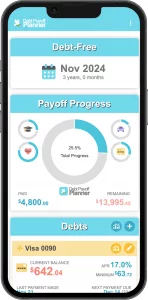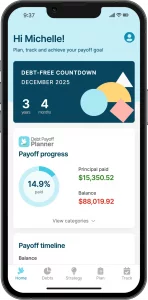Many of us have official obligations like credit card debt and less formal debts to friends or family members that include personal loans. Usually, one of these personal loans isn’t structured by a formalized loan agreement, but it can be equally important to your reputation, relationships and financial budget to treat personal loans just as seriously as you do contractual obligations for paying off credit card debt and other loan obligations. Family borrowing often comes with hidden agendas and generates unexpected consequences, so the following financial best practices for keeping peace and fulfilling your commitments make sense:
Balancing the Demands of Legal Creditors with Personal Financial Obligations
Unfortunately, informal family-style loans are usually the first casualties when people get in financial trouble and can’t pay their debts. It’s just human nature to put off friends or family members when you’ve got legal creditors aggressively pursuing collection activities. However, it can also be draining and frustrating when friends or family members get upset over nonpayment of loans. These disputes could ruin relationships, generate lifelong enmities, preclude any future borrowing–even in extreme emergencies–and even result in legal actions from offended friends or family members. The best strategy for balancing legal and personal debts involves talking to the lenders, balancing repayments as fairly as possible, guaranteeing to pay interest on loans that can’t be immediately repaid and cutting personal expenses to free cash. Other options for meeting all your obligations include using income tax returns to make up shortfalls, taking out a consolidation loan, borrowing against life insurance and accessing retirement accounts.
Paying Interest to Friends and Family Members Is a Fair Strategy
Paying interest is critical to maintaining a professional relationship when borrowing money from friends and family members. It’s entirely possible to manage awkward conversations, delayed payments, missed payments and other considerations if the lender is getting full value through a reasonable rate of interest. if borrowing large amounts for business or a mortgage, the IRS fully expects you to pay a normal rate of interest. Regardless of how flush the lender might be, he or she could be earning a return on the money, so it’s only fair to offer to pay interest. In some cases, a good friend or parent might choose to offer a loan at little or no interest as an accommodation. Each case is different based on the relationship, loan amount, repayment period and purpose of the loan. It’s fair to offer to pay interest regardless; the lender can always refuse to charge interest or lower the rate.
Initiating Awkward Conversations When Unable to Repay Family Loans
Regardless of whether the lender really needs the money, letting a friend or family member know that you can’t stick to the payment schedule is always awkward. However, it’s critical to keep communications open and let the lender know immediately what’s happening. Regardless of whether the person needs the money, he or she might expect to receive it. Discuss the matter as soon as trouble becomes obvious, and try to arrange a more realistic repayment plan. Gather all the necessary documentation to explain why you can’t repay any loans as planned. For example, it might be necessary to pay down credit card debt to qualify for a mortgage or auto loan. Family emergencies and even sudden business opportunities could justify an awkward repayment conversation regardless of whether the loan was informal or structured legally.
Understanding Personal Debts and Their Treatment by the IRS
Frankly, the IRS doesn’t care about most informal family loans regardless of whether interest is involved. The exception is larger loans that are used for home mortgages and businesses. These loans–and their interest–affect taxes, deductible expenses and IRS thresholds that require minimum interest rate levels. It’s especially critical to set up these kinds of loans legally–especially loans for larger amounts of money that the IRS could consider as an effort to get around paying gift taxes. These include student loans, mortgage loans, business loans and large loans for personal use. Setting things up legally allows lenders to take deductions for nonbusiness bad debt and for children to deduct student loan interest that they pay.
Proactively Managing Potential Family Squabbles
Borrowing money from family members or friends generates big potential for disagreements, misunderstandings and meddling in your company if the loan is for a business. That’s why it’s important to spell out the terms of any loan in advance, calculate interest charges and set late fees if the repayment obligations aren’t met. Keeping your commitment is important, and lenders should also understand what to expect from a loan. Family loans shouldn’t entitle any lender to try to control your business or personal life, but that doesn’t mean that the lender won’t try to do so. Setting the terms professionally and sticking to your commitments go a long way toward precluding undue influence, meddling and family arguments. Documenting the loan’s terms avoids frustration and misunderstandings.
Getting a loan from a family member or friend is often an informal process, but you can experience hidden perils that threaten your relationships, tax and business strategies and even your livelihood and credit rating if you don’t treat these loans as real-world commitments for paying off debt. Keep things as formal as possible, and repay your loan professionally. There’s no downside to keeping all your creditors informed and working with them when things don’t work out as planned. You’ll not only protect yourself legally but also strengthen your personal reputation.
Photo courtesy of Mechanoid Dolly.














